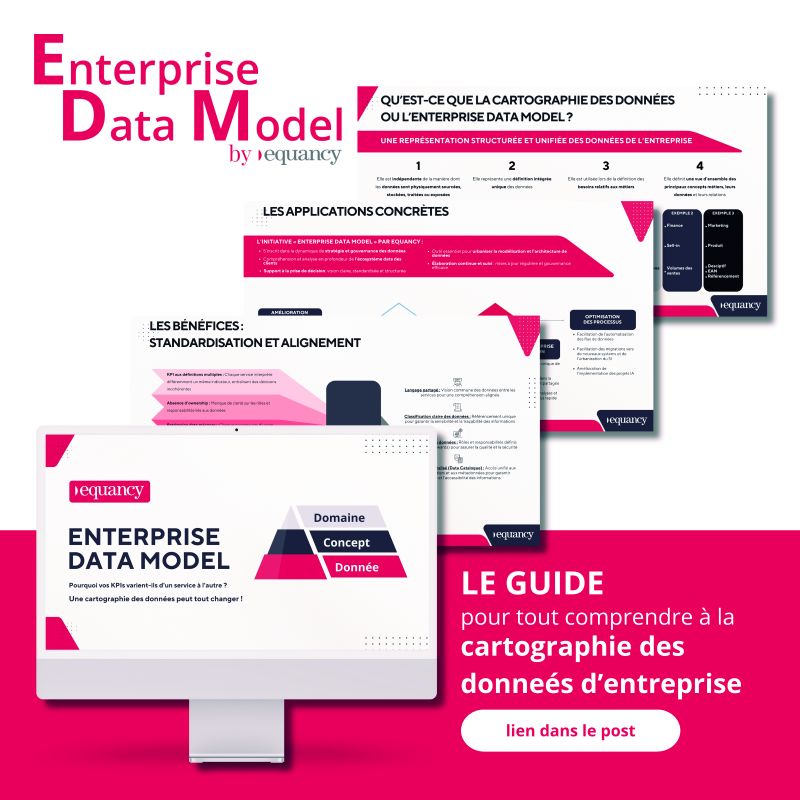How does personalized customer journey boost your audience conversion?
On September 26th, Equancy had the pleasure to organize a breakfast around customization in partnership with AB Tasty, an expert in this field who has already accompanied more than 850 companies in their approach. Together, they welcomed the Pierre & Vacances Center Parcs (PVCP) group, European leader in local tourism, which came to share its experience in terms of personalization.
Personalization is the process by which companies adapt the content they offer to the audience they wish to reach in order to maximize its relevance and therefore its effectiveness. Based on user data, personalization can be applied to both the message and the offer itself. Back to the main principles of personalization and its key steps!
An essential lever for capturing your audience
At a time when information is accessible everywhere, all the time, and in almost infinite quantity, the Internet user can afford to be demanding regarding the contents that are proposed to him. If not in phase with his needs and desires of the moment, or not adapted to his profile, he has only one click to go on to the next one and find more relevant ones. In this context, personalization becomes a necessity not only to capture his attention, but also to convince him and build his loyalty. Indeed, 47% of customers would be more likely to remain "loyal" to a brand thanks to personalization (1). Personalization is therefore a key issue at every stage of the conversion tunnel to optimize the customer experience (2), and thus avoid falling behind the competition.
A customer-centric necessity or nothing
While it seems obvious that personalization must be centered around the consumer, we sometimes forget that this means not only addressing his needs but also respecting his limits. 41% of consumers find it frightening to receive a brand or retailer's message when they approach a store and 40% after being in a physical store. 35% are scared when they receive ads on social networks for items viewed on a brand's website. (3) So personalization is fine, but keep in mind that too intrusive personalization can be counterproductive.
A solution that requires a qualified and workable base
Customization allows brands to optimize the user experience and thus achieve or maximize business objectives. For example, by offering its new user segment more immersive content by offering videos instead of images on the product sheets of its Works Council website, PVCP Group has improved conversions in this segment by 10%. Excluding segments targeting new visitors, for which the lack of data is the basis of the segmentation itself, personalization must be based on a qualified database. Whether the data is behavioral, declarative, contextual or CRM, this is what will enable effective and relevant segmentation and thus meaningful results. It should also be noted that internal data ("first-party data") is generally preferable to external data ("third-party data") because of its known quality and origin.
A process organized around different steps
- Segment its audience according to quantitative or qualitative data, for example, identifying users' problems and needs. This is what will allow to describe people, which are defined by common motivations and expected behaviors. The segment must also be activatable: for example, the PVCP group has defined as a general guideline to have a minimum of 10% of exposed users. However, this guideline should be qualified: it does not constitute a barrier to the launch of a customization project, because each project is first of all subject to a sizing process that makes it possible to estimate its own volume potential.
- Define macro and segment objectives. These objectives can be notoriety, commitment or conversion. They are the ones that will guide the implementation of the customization strategy and help establish whether or not it has been effective.
- Create personalization scenarios from the previously defined personas. This involves expressing their needs, reasons and constraints in order to define customization hypotheses. Then, it remains to prioritize these scenarios in such a way that the same Internet user is only exposed to one type of personalization at a time if he or she belongs to different segments (e.g. prospect and recurring visitor).
- Measure results using good practices and tools. This starts with the precise definition of KPIs prior to implementation: they must be relevant, in line with the stated objectives, and in reduced number. Finally, to analyze the results, it is essential that the personalization campaign be linked to an Analytics solution and can be compared to a "neutral" sample, i.e. not exposed to personalization.
Tired of mass marketing that they often find ineffective and irrelevant, consumers are now in favor of personalization. This is what different studies have established: 86% (4) of French people consider that brands send them too much information that does not interest them, and 82% (5) of consumers would be willing to share their data with their banks to get more relevant advice according to their personal situation.
This is a real opportunity for companies, which have everything to gain by taking advantage of this reality: brands that take the decision to create personalized experiences using internal data see their revenue increase by 6% to 10% (6), two to three times faster than others. It is in this context that Equancy works with brands by supporting them in defining their personalization strategy, prior to its implementation, to enable them to define use cases, set up governance or performance measurement tools.
(1) Boston Consulting Group (2019)
(2) "L’expérience client est la somme des moments lors desquels le client est en contact avec la marque – que les touchpoints soient physiques ou digitaux – et des sentiments positifs comme négatifs qui en résultent".
(3) « Personalization Pulse Check 2018 » Study
(4) Opinionway pour Asterotop Study
(5) « Discover the patterns in personality 2019 » Study
(6) Boston Consulting Group (2019)




